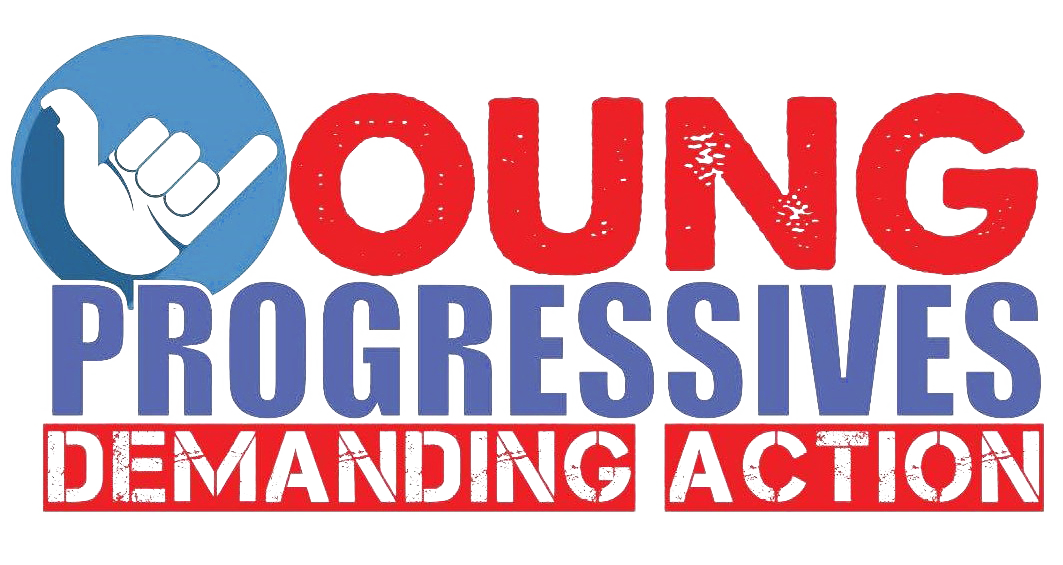tax Fairness
Take action
As part of the Hawaiʻi Tax Fairness Coalition, YPDA will be using the coalition action center below to drive support for tax fairness. Take quick actions now with just a click or two. But don’t forget to register at capitol.hawaii.gov so you can track bills and know when to submit testimony too.
Hawaiʻi Tax Fairness Coalition Proposal
Below you’ll find the preferred suite of tax fairness proposals from the coalition and the range of revenue that could be raised from each. To learn more, visit the coalition website here.
What do we mean by tax fairness?
A good tax policy strengthens opportunity by letting working families keep more of what they earn, while asking the wealthy and corporations to pay their fair share. Why? Because when workers keep more earnings, they support our economy through spending. And when the wealthy and corporations pay their fair share for the use of the public goods and infrastructure that helped them succeed, they ensure that the next generation can succeed as well.
Now is a critical time for tax fairness
The pandemic-recession caused by COVID-19 has dramatically impacted working families that earn low wages far more than it has impacted the wealthy and even the middle class.
That’s extremely bad for our economy because low-wage workers spend most of their earnings here in Hawaiʻi, powering the consumer spending we need to generate tax revenue through the General Excise Tax (GET). At the same time, high unemployment will reduce revenue from income taxes, and public health concerns have reduced revenue from the Transient Accommodations Tax (TAT). Without revenue from these taxes, our state government is facing a $2.3 billion deficit (through fiscal year 2023).
A deficit in the budget means social service contracts and programs could be cut, state workers could be furloughed and lose pay, or even be laid off, unless new revenue is raised to replace the lost revenue. And we must find new revenue, because cuts, furloughs and lay-offs will only serve to further reduce GET and income tax revenue, and further reduce consumer spending in our already-wounded economy. In fact, every dollar of reduced government spending results in as much as $1.50 in lost economic activity.
Fortunately, new revenue streams do exist. Loopholes can be closed. Federal trickle-down tax cuts for the wealthy and corporations can be negated at the state level. In fact, there are enough options available through tax restructuring alone to cover almost half of our entire projected deficit (while the rest could be covered through borrowing).
We could also legalize and tax recreational-use marijuana, projected to be worth $35 billion nationally by the year 2025. In 2017, Oregon generated $70 million in cannabis tax revenue in the first fiscal year of its recreational program. In 2019, it collected $102 million.
In a 2006 report called “Marijuana Production in the United States,” it is estimated that Hawaiʻi’s illegal growers had 5.48 million plants, with a total annual production of 2.38 million pounds worth $3.82 billion.
Taken as a whole, these tax revenue generators would cover a significant portion of deficit, helping us to avoid costly cuts and furloughs that will only prolong and deepen the recession. And because none of these proposals are tailored toward low- or moderate-income earners, they actually increase economic power and opportunity for success. That’s what tax fairness is all about!
Tax Credits To Boost Spending
But it’s not just enough to generate new revenue streams from those who can afford to pay. We can take another step toward ending the recession by strengthening Hawaiʻi’s various tax credits for working families, helping them keep more of what they earn and powering the consumer spending our economy currently relies on.
Working families pay higher tax bills than those in all but three other states, and the tax rate for low and moderate income households is among the highest in the nation. The poorest taxpayers pay, on average, approximately 13 cents of every dollar of income in taxes, while those earning more than $400,000 pay closer to 8 cents on every dollar of income. Hawaiʻi has the second highest tax rate on people living below the poverty line. The lack of adequate credits and exemptions means that the personal income tax actually pushes some low-income working families deeper into poverty.
Proposed changes to the Low-Income Household Renter’s credit would increase it’s value to make up for ground lost to inflation during decades of neglect. Additionally, these changes will improve the credit’s structure to implement tax policy best practices, allowing for a gradual credit phase-out as household income increases, and tailoring the credit to better focus on those most in need
As Hawaiʻi families struggle to put food on the table, the GET affects food and other life necessities, placing a significant additional financial burden on people who are working hard to make ends meet. Since 2007, Hawaiʻi has had a Refundable Food/Excise Tax Credit designed to help ease the tax burden on basic necessities. To keep up with the continuously rising cost of living, the credit should be increased. We should adopt a credit that keeps up with future cost of living increases so that the tax burden on basic necessities does not increase year after year as living costs go up.
And finally, although Hawaiʻi did create a state level Earned Income Tax Credit (EITC) in 2017, the credit is currently non-refundable, which leaves a significant gap in coverage for the workers who actually need the credit the most, the lowest-income families. That’s because those lowest-income workers don’t earn enough to have a tax liability greater than the size of the credit they deserve. Non-refundability means that the difference in value is completely lost for them. If we make the state EITC refundable, those families would, instead, receive the difference in value in the form of a check from the state, putting more money in their pockets to help them pay for the basic needs, while helping us power our economy.
Real tax fairness would include these changes to Hawaiʻi tax credits as well, and good public policy would include them because they will only serve to further reduce the duration and severity of the pandemic-recession, mitigating the harm to our economy and communities.



